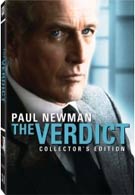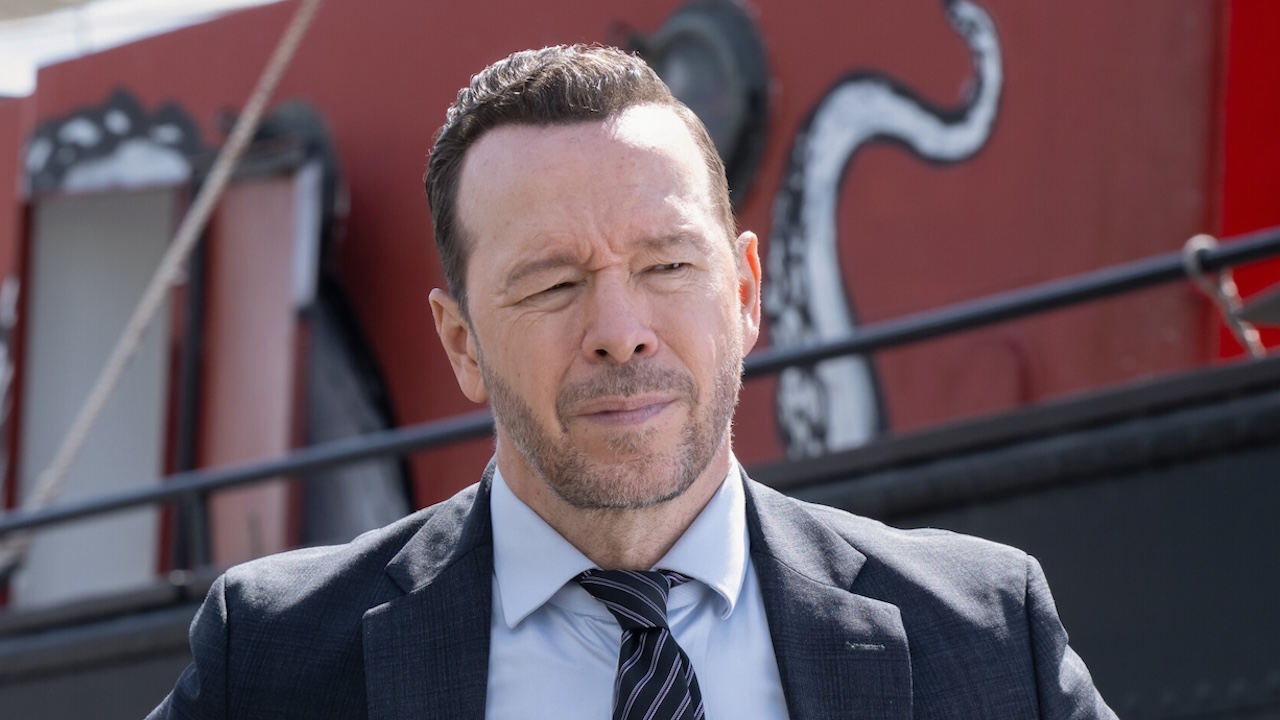The jury is in on this two-disc special edition of the 1982 Paul Newman classic, The Verdict, and while I can rule in favor of Paul Newman’s performance, the film itself fails to live up to its reputation. It’s not that I don’t respect the directing of Sidney Lumet, the dialogue of David Mamet, or even the supporting cast, but at the end of the day, the film was made in 1982 and, while Paul Newman just gets better with age, The Verdict does not. Newman portrays Frank Galvin, a formerly impressive trial lawyer who sinks into an alcoholic haze after he’s wrongfully accused of tampering with evidence and subsequently loses his wife and job. Now his daily routine consists of chugging the breakfast of champions (a raw egg dumped in a beer) before cruising for clients at random funerals and then passing out on his office floor. One afternoon, he is jolted from his power-nap by former associate Mickey Morrissey (Jack Warden), who reminds him of an open-and-shut malpractice suit he so kindly tossed Galvin’s way. Galvin shapes up enough to slur his way through meeting with the plaintiffs, quickly convinced that he can get a hefty settlement beneficial to all parties involved.
Initially just hoping to extort enough from the defense to settle his numerous bar tabs, Galvin heads to the hospital to photograph the victim, a young woman left in a coma after her doctors gave her the wrong anesthesia during childbirth. But as Galvin watches the incriminating Polaroids develop in an extremely poignant shot by Lumet, he realizes the injustice done to the poor woman outweighs any sum of money he could gain in a settlement. Intent on bringing the case to court to resurrect his career and his integrity, Galvin refuses the defense’s settlement unbeknownst to his clients, assuming justice will be easily served. Only Galvin isn’t prepared for the extreme measures the defense is willing to take to ensure the reputations of their clients remain intact.
In the special features portion of the DVD, Paul Newman says, “There are some people who will say this is a courtroom case, which it isn’t… it’s really about the redemption of a human being.” Viewed as such, The Verdict earns all of its accolades, as Paul Newman’s Galvin grows from an “ambulance-chaser,” to a man willing to risk it all in the name of justice. It is in these scenes of redemption that Mamet’s script really shines, with Galvin’s dramatic closing statement bringing the film to a deeper exploration of humanity. Paul Newman’s performance is certainly one of the best of his career, and many debate that his Best Actor award for The Color of Money was, in effect, a make-up for his loss four years prior.
However, the film is still about a legal battle on some level, and even Newman’s stellar performance can’t transcend the flaws in plot and pacing. The Verdict is an old-fashioned film even for the 80’s, relying heavily on characters rather than action. The film’s grueling 129 minutes creep, especially since the actual events of the story can be summed up in four short sentences. There are no A Few Good Men-style dramatic “you can’t handle the truth” eruptions in the courtroom, and the logistics of the case, while moving, aren’t particularly suspenseful. There is never a sense of urgency in the film, such that even when the verdict is finally delivered, the moment feels incredibly anti-climactic. Furthermore, while I am a huge fan of David Mamet in general, his dialogue is particularly inaccessible in this script, where no one ever seems to actually SAY anything, and some of the courtroom antics are ridiculously implausible.
It is only when you return to the most dramatic moments of the film (a luxury the DVD provides) that you can see the subtle performances and moving speeches that have garnered The Verdict “classic” status. The film is strangely more enjoyable in retrospect than it is watching it for the first time. Ultimately, it will be most appreciated by movie-buffs who value performances and quality directing over an engaging story. This two-disc wide screen Collector’s Edition has hours of special features that help first time viewers appreciate the importance of The Verdict from an 1980’s perspective. While modern viewers may be biased against the film for slow pacing and inaccessible characters, the special features help to ground the film in the history of cinema and accentuate the powerful performances of Newman and his supporting cast.
While the disc boasts several special features, several are painfully redundant. The first two features are “Making of” segments, though, rather than give you insider information, they basically repeat the back of the DVD cover and show a few clips. The first is straight out of the 80’s though, so it is fun to hear their old school voice-over man and compare him to our own. The Hollywood Back-story feature is akin to our Access Hollywood but again, doesn’t really enhance the viewing experience.
However, three of the features are particularly worth checking out. The first, titled Paul Newman: The Art of Acting, has Paul Newman reflecting on his role in The Verdict and his craft in general. His passion for the industry is evident throughout the interview, and while he can’t quite pin down the secret to his success, he does joke that his salad dressing is more lucrative than his acting career. This segment is followed by a one-on-one with the director, Sidney Lumet who gives incredible insight into his decisions on set and reveals his first law of filmmaking, “A hit is better than a flop.” The last interesting segment, titled Milestones in Cinema History: The Verdict, reveals fascinating behind the scenes secrets from the set, including a story about how Mamet’s original script didn’t even reveal the final verdict, and when he was asked to alter it, Mamet gave the producer the finger on his way out. Every detail about the film from the writing, casting, development, even the color of the courtroom floors, are described in detail, offering a true behind-the-scenes glimpse at the film.
Your Daily Blend of Entertainment News
Overall, if you are interested in seeing the film, definitely splurge for the two-disc special edition, especially if behind-the-scenes information is interesting to you. The sound quality is a little overwhelming but the picture is impressive, especially for a film from an era before you could edit out wrinkles on screen.

